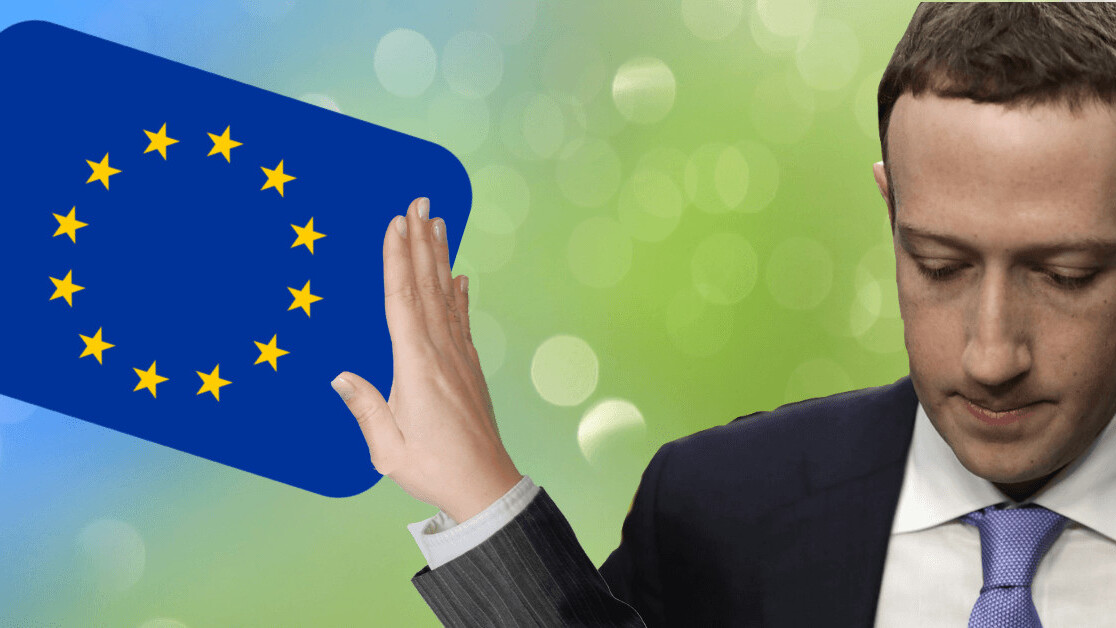
To say 2018 has been a difficult year for Facebook is an understatement. The Cambridge Analytica scandal, US senate hearings, and a massive data breach last month have all contributed to making life incredibly difficult for Zuckerberg and friends — and now the EU Parliament wants to add to their troubles.
Yesterday, members of the European Parliament (MEPs) agreed on a resolution to “urge Facebook to allow EU bodies to carry out a full audit to assess data protection and security of users’ personal data.”
The MEPs cite Cambridge Analytica and the 87 million users affected by the data breach as the reason for the proposed audit. The resolution is laudable, and it’s clear an impartial audit is needed as Facebook’s operations may have breached EU law — but it rings a bit hollow when you dig into it.
MEPs urge Facebook to allow EU bodies carry out an audit. The reason for this wording is that, weirdly, the EU can’t subject Facebook to an audit without the company’s consent.
TNW spoke with Iina Lietzén, an EU press officer, who confirmed this interpretation: “An audit on Facebook by EU agencies would require the consent by Facebook, which is what the Parliament is calling for in the resolution.”
It means that Facebook could simply say ‘no’ and there wouldn’t be an audit.
Facebook didn’t get back to us before this article went live on whether the company would submit to an audit, but it does seem unlikely.
But if Facebook does, for some reason, allow an audit, then MEPs have a few ideas on what the social media platform should do to prevent election meddling a la Cambridge Analytica. MEPs propose:
- applying conventional “off-line” electoral safeguards online: rules on spending transparency and limits, respect for silence periods and equal treatment of candidates;
- making it easy to recognize online political paid advertisements and the organization behind them;
- banning profiling for electoral purposes, including use of online behavior that may reveal political preferences;
- that social media platforms should label content shared by bots, speed up the process of removing fake accounts, and work with independent fact-checkers and academia to tackle disinformation;
- investigations should be carried out by member states with the support of Eurojust (EU’s judicial cooperation unit) into alleged misuse of the online political space by foreign forces.
Now it’s up to the president of the European Parliament to relay the parliament’s request to Facebook. The ball is now in Zuckerberg’s court: let’s see what he’ll do with it.
Get the TNW newsletter
Get the most important tech news in your inbox each week.





